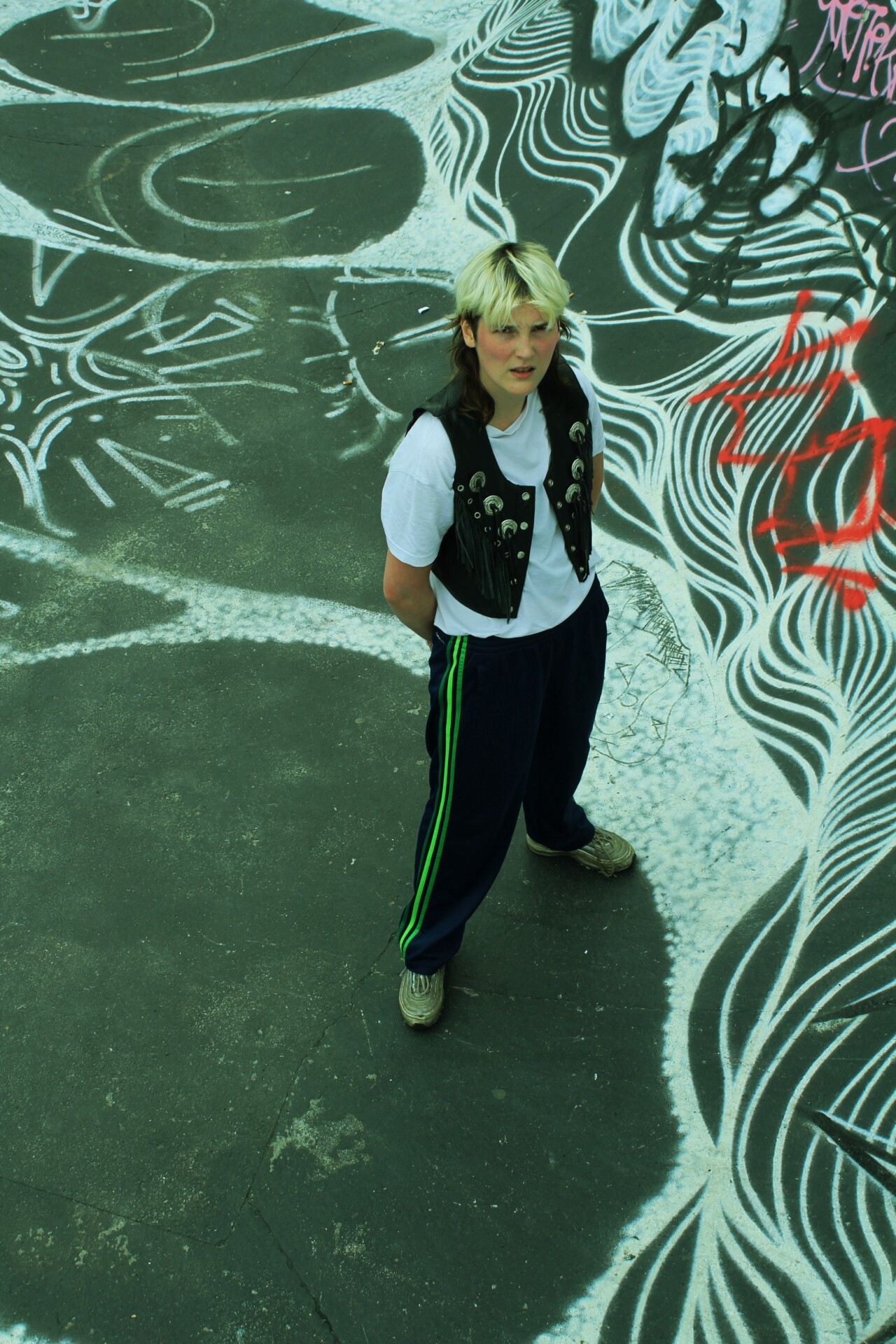No products in the cart.
Embark on a melodic journey through Stanislawa's musical world and uncover her interview.

Living between Brussels and Amsterdam, the queer producer Stanislawa, affectionately known as Satanislava, offers a unique blend of trancy sounds and 90s techno grooves. Founder of the Deep Down East collective, she has left an indelible mark on the Belgian scene, gracing iconic venues such as Fuse, Decadance, and Kompass. Collaborations with platforms like Boiler Room and Modul’air have further enriched her artistic journey, culminating in the release of her awaited EP “Forever Strong,” slated for May 1st, 2024. On the 12th of April, she released her single “Fast & Groovy”, which is the first track from her awaited EP “Forever Strong”.
Clubbing TV discussed with Satanislawa to delve into the creative process behind her upcoming EP “FOREVER STRONG” and to explore the multifaceted nature of her artistic journey. Listen to the EP here!
The Story behind “FOREVER STRONG” EP.
Forever Strong was composed in the summer of 2023. At that time, I had just had a fight with one of my best friends. I was feeling so much anger and disappointment that I needed to find a way to release it. I locked myself up in my bedroom for three days and produced the first three tracks of the EP. Composing this EP made me realize that making music was like therapy, a part of my healing process.
Working on “FOREVER STRONG” EP
I composed the tracks in my bedroom, but I also worked a lot on my laptop during my bus trips between Amsterdam and Brussels. For instance, the melody of the last track, ‘Stan Blue,’ was created on a sunny day while I was on the bus to Amsterdam. I was in a very good mood, and I believe you can hear the difference compared to the first three tracks that I produced in a different context.
Your EP showcases a wide spectrum of genres, from techno to rap on “Young & Horny” and “Fast & Groovy,” and from trance to a punk approach on “How To Not Give A Fuck,” demonstrating your versatility. Do you like not being stuck in one genre?
In my daily life, I listen to a wide range of music genres, not limited to electronic music. Depending on my mood, I’ll listen to 90s Rap, Rock, or some old-school pop music. Mixing rap and techno in my music came very naturally to me, but the punk influence, I suppose, stems from my rebellious nature.
How did the crowd react when you played those tracks?
It reacted really good actually! Every time I play one of my tracks, the crowd’s reaction is overwhelming, and I’m always deeply moved. Having the opportunity to play my own music in a legendary club like Fuse, with a full room cheering, is an indescribable feeling. At times, it feels almost surreal.
What’s the concept behind your quartet, “Hard Being Hot,” and how does it fit into your artistic vision?
HBH is essentially a friends’ reunion; each of us has different musical influences, but when we play together, the only rule is to have fun, and I absolutely love it. Working with my friends brings me joy, and I feel stronger surrounded by them. From a musical perspective, it allows me to explore tracks I wouldn’t typically play solo. Back-to-back sets are always intriguing in that regard; you might be challenged by your partners, but it results in something truly unique and creative.
What are the three vinyl records you couldn’t live without, and what makes them so significant to you?
– Scorchio – Sander Kleinenberg’ Scorch remix
– Silver Bath – Plastic Boy
– Break 4 Love – Raze (Euphoric mix)
These are my favorite trance tracks. It’s difficult to choose only three, but all of them have a deeply nostalgic vibe that resonates with me.
Can you share more about Deep Down East and its mission to promote DJs and artists from Eastern Europe?
I founded the Deep Down East collective back in 2017 because of the lack of Eastern European representation in the scene, and it has been continuously developing ever since. Some of our crew members are connected to Eastern European countries through citizenship and family roots, the Eastern European cultural representation is therefore close to our heart, as we sometimes feel that an invisible iron curtain is still in place, undermining our identities.
Currently, there are six of us working within the collective: EMILIJA, Vera Moro, and myself serve as the resident DJs. Charles takes care of the safety aspects of our events, consistently working to enhance party safety. Guillaume and Timon handle finances and marketing.
Over the years, we have hosted artists mostly from Poland as Monster (DJ) and Mala Herba (Live) who had their first showcase in Belgium with us, as well as artists from Ukraine such as Alis, Cheka, Tweeman, and Omon Breaker & Nastya Muravyova, who performed a remarkable b2b set for the first time ever—it was an incredible duo!. Moving forward, our aim is to feature artists from other Eastern countries as well.
Your involvement in organizing fund-ravers suggests a proactive stance against political apathy in culture. How do you think music can contribute to activism?
Music contributes to activism by driving societal change. When looking at the LGBTQIAP+ community, I believe that queer icons from the 80s played a pivotal role in evolving societal perceptions by challenging gender norms and stereotypes. Nowadays, we witness an increase in organized fundraisers, which I consider the most effective method of revitalizing activism within our community. Simply showing solidarity through these events can bring about significant change.
Do you think that your activism can restrict your career?
Before fully committing to music, I worked in politics, and at that time, I was more concerned about how my music career might influence people’s perception of me and whether I would still be taken seriously. However, as someone who has always spoken up for what I believe in, I’m not afraid to continue doing so in my music career. The main platform where I feel restricted is Instagram. We’ve witnessed accounts being shadow-banned for sharing content related to Palestine, which is problematic considering Instagram has become an indispensable tool for artists.
What’s your after-party routine? (When you go home)
I enjoy listening to music through my headphones on my terrace, while smoking and looking at the view of Brussels North with the Atomium (weather permitting). Afterwards, I usually eat instant noodles before drifting off to sleep.
Your dream gig?
Bassiani
Your favorite closing track?
Oasis – Paragliders (or one of my unreleased tracks)
Your dream collab?
Hector Oaks
Stanislawa offers a glimpse into her eclectic musical journey and her unwavering commitment to self-expression. Through her music, collaborations, and activism, she continues to push boundaries and defy genre constraints, leaving an indelible mark on the electronic music scene. As her EP “Forever Strong” awaits its release, Satanislawa’s powerful force promises to captivate audiences and inspire meaningful change within the music community and beyond.

